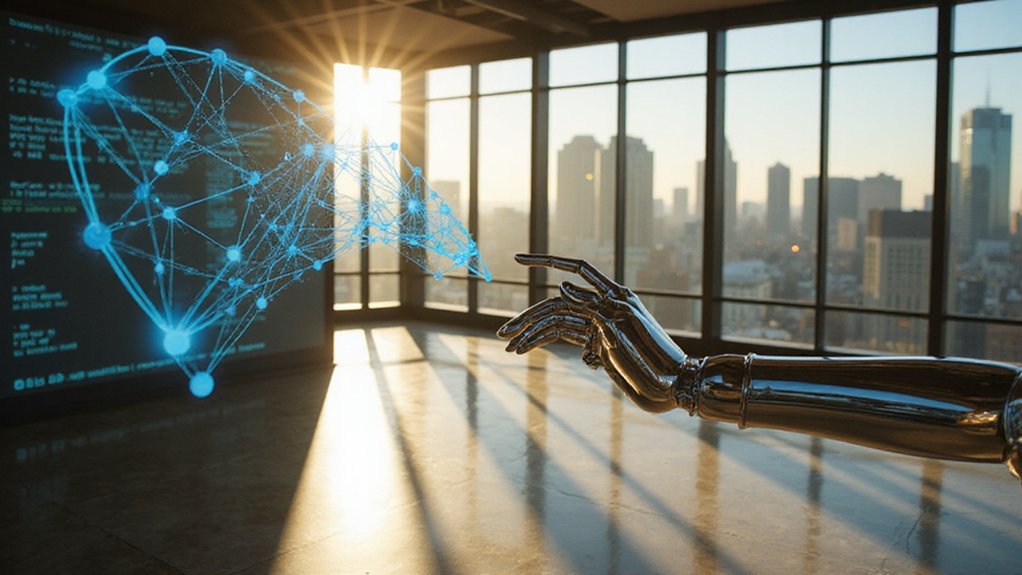How swiftly artificial intelligence has evolved from a speculative curiosity relegated to science fiction into the indispensable backbone of modern commerce and governance. The statistics speak volumes: generative AI adoption among business leaders surged from 55% to 75% in merely one year—a trajectory that would make even the most aggressive venture capitalists pause to reconsider their growth projections.
The metamorphosis extends far beyond simple automation. AI agents now demonstrate genuine problem-solving capabilities rather than functioning as glorified customer service routers, while their context windows expand to millions of tokens (because apparently even artificial minds require increasingly capacious memory banks). This “near infinite memory” enables personalized experiences that recall every prior interaction—a feat that might leave human executives scrambling to remember last Tuesday’s board meeting.
Modern AI agents possess problem-solving prowess and near-infinite memory that would make even the sharpest executives envious of their silicon counterparts.
Public sector adoption reveals equally compelling dynamics. Government agencies deploy AI for fraud detection and cybersecurity while processing unemployment claims with unprecedented speed and accuracy. The irony isn’t lost that artificial intelligence now outperforms humans in clinical reasoning tests, suggesting that our silicon counterparts possess diagnostic acumen that would humble seasoned physicians.
The technological architecture underlying this revolution continues evolving toward hybrid models combining quantum computing with specialized hardware. The shift from monolithic, closed AI systems to accessible smaller models represents a strategic pivot—enterprises can now deploy bespoke solutions without requiring Google-scale infrastructure budgets. Specialized models will enhance performance in fields like science and medicine, delivering precision that generalist systems cannot achieve. The economic implications are staggering, with AI projected to contribute $4.4 trillion to global economic growth through strategic optimization across industries.
Autonomous systems advance from pilot programs to practical applications, with robots and digital agents adapting dynamically across industries. These developments herald new human-machine collaboration paradigms utilizing natural interfaces and multimodal inputs, fundamentally restructuring workplace productivity models. Community-driven initiatives are emerging to democratize AI knowledge and make advanced research accessible to global contributors rather than restricting it to corporate laboratories.
Perhaps most intriguingly, AI addresses global challenges from climate crisis mitigation to healthcare access expansion. The commitment to safety and security remains paramount as deepfakes and disinformation threats multiply alongside AI prevalence. Organizations must navigate this landscape carefully—the potential for transformative value creation exists alongside equally significant risks.
Those positioning themselves strategically within this ecosystem aren’t merely adopting tools; they’re architecting tomorrow’s digital infrastructure. The question isn’t whether AI will reshape every sector, but rather who will command the resulting value chains when the advancement completes.






